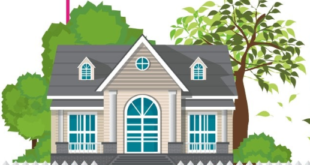Stagnant wage growth, rising prices resulting in escalating deposit requirements and employment insecurity have all played their part in the shift from home buying to renting. Although buying a home continues to be an aspiration. For an increasing number of people in their 20s, 30s and 40s renting remains the only option. Not surprisingly therefore, the government through help to buy, cutting stamp duty and other schemes is trying to help first time buyers.
Regional differences
There is of course a huge regional difference. The higher average salaries of London and the South-East are offset by higher rental and mortgage costs and possibly longer and more expensive commutes. The gap is widening, in the last ten years, home prices in most of the UK have risen by less than 15% whereas across the South-East they’ve risen at over double the rate and in central London a massive 60%. Interestingly, outside of the South-East, prices have not kept pace with inflation.
Deposits
Even in highly priced London and the South-East, mortgage payments can often be below rental costs. What holds many potential buyers back is the deposit. Following the financial crisis, lenders are much more cautious, the days of 100% (or even more) mortgages are unlikely to return. As deposits in high priced areas are likely to be more than annual incomes, saving for a deposit could take decades unless help from the bank of Mum and Dad is available.
In lower cost areas with lower deposit needs, buyers with secure jobs are much better placed for getting on the ladder.
Renting by choice
Owning your own home is part of the British tradition. Around 60% of us are buying or owning yet in Germany the figures are the other way around. Less than 40% buy, and in the bigger cities, the figure is much lower still.
So, is the shift in the UK to renting solely due to finance or are other factors playing a part.
Owner benefits
- Eventually you will own it. Conveniently this often coincides with pension age, when incomes fall.
- It builds equity which can be released through downsizing or equity release plans
- More freedom to update, alter and extend. You benefit from the investment
- Security of tenure
- Mortgage payments over time almost certain to be lower than rising rental cost
Owning downsides
- Saving for a deposit can mean sacrificing holidays and everything else!
- You are responsible for maintenance and repair
- Moving is expensive and can take time
- Home values can fall
- Flats and some houses have annual charges that can escalate
Renting benefits
- Maintenance and other charges are included in the rent
- It’s easier to move if you need for example to relocate for a new job
- Tiny deposit by comparison
- Rents compared to early years in a mortgage are often lower
- Sometimes the only option for those with limited income in central areas
Renting downsides
- Rents rise over time
- No long term return for what you have paid
- Reliant on landlord for decorating and repairs
- Limited security and say over how the property is managed
- You do not benefit financially for improvements you do
 Homeowners Club If you are one of the 15 million homeowners in the UK, the free to join online Homeowners Club is for you.
Homeowners Club If you are one of the 15 million homeowners in the UK, the free to join online Homeowners Club is for you.







